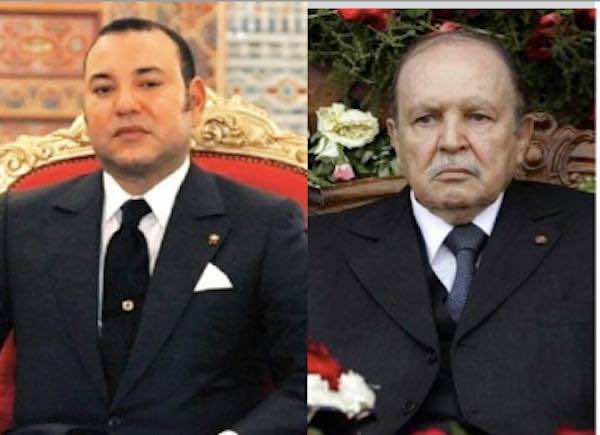Image may be NSFW.
Clik here to view.
Washington DC- With the Western Sahara conflict in a stalemate at the United Nations, It is time for Morocco and Algeria to resolve their long standing territorial dispute over the Eastern Sahara. The regions of Bechar and Tindouf where the source of 1963 Sand War and are still at the heart of the current “cold” war between the two nations. Since the Algerian military establishment will never agree to a settlement in the Western Sahara without an agreement over its borders demarcation with Morocco, an international diplomatic campaign highlighting territorial issues with Algeria remains the only choice for Rabat.
Morocco must force Algeria to acknowledge that there is indeed a territorial dispute. The row is not over the Western but rather the Eastern Sahara. It is time to cut to the source of the conflict before the current dangerous situation in Sahrawi camps in Tindouf bursts into an open military conflict between to the two highly militarized neighbors.
On the surface there are clear differences between the Eastern Sahara dispute that opposes Morocco and Algeria over their Eastern borders and goes back to 1963, and the Western Sahara conflict that began in 1975 with Morocco’s recapture of its southern province from colonial Spain. However, the geopolitical games between the two parties make the two conflicts as one. Algeria’s military rulers have been weary of Moroccan claims since the end of the Sand War and understand that a resolution to the Western Sahara dispute will free up Morocco to reclaim Tindouf and Beshar.
The “Western- Eastern Sahara dispute” has its origin in 1956 when France’s colonial administration negotiated the independence with Morocco and set the borders between Morocco and what is called Algeria today. Since Algeria never existed as an independent entity it is hard to define a clear delineation of its border with Tunisia, Mauritania or Morocco.
All experts agree that Algeria and Morocco inherited ill-defined frontier parameters from colonial France. Since Paris intended to keep Algeria French, the colonial authorities annexed the eastern provinces before granting Morocco its independence. Bechar and Tindouf were historically under the rules of Moroccan Kings and, thus, should have been returned to Morocco.
Since an Algerian nation never had clear borders, modern law will likely side with the Moroccan claims. Long established religious and tribal ties of Eastern Sahara inhabitants to Moroccan Sultans will give the Kingdom a strong claim to sovereignty over the territory.
The legacy of the Sand War is evident in the Algerian official positions in the Western Sahara dossier. For Algiers, Morocco cannot be trusted since it turned against a young Algerian republic right after the independence. While in fact, it was Algeria’s first President Benbella who betrayed late King Hassan by reneging on his promise to reconsider the borders demarcation between the two nations.
King Hassan II consented to Morocco’s Eastern borders as marked by Colonial France with the intent to negotiate with the Algerian “brothers” rather than the occupying forces. But once it was evident that the Algerians were not keen in keeping their bargain, King Hassan decided to take action and recover the Moroccan territories lost to French Algeria.
If Morocco “won” most of the battles, the Algerian diplomacy won the Sand War. Late King Hassan put too much trust on the Algerian, the African and the Arab “good will” in resolving the crisis. Today, it is evident that Rabat mismanaged the post Sand War diplomatic campaigns, while the Algerians compounded their successes by bogging down the Moroccans in the Western Sahara.
Morocco’s wavering campaign for the returns of Tindouf and Beshar was a mistake that the Algerian sized on once the Western Sahara conflict erupted in 1975. The then-president Boumediene was quick to adopt the Polisario independent movement in the Western Sahara and turn it into a proxy militia serving Algerian interest and fighting for Algerian causes.
The Internationalization of the Western Sahara conflict pushed the Eastern Sahara dossier off the scene. However, it is time to bring it back to the forefront and look at its impact on the current military and political insecurity in North Africa.
Resolving the Algerian-Moroccan border dispute is key to ending the Western Sahara crisis. An Algerian compromise on the sovereignty of the Western Sahara in exchange of a Moroccan final agreement on the eastern borders may be the only way out of this simmering row. This will require courage form the Algerians and assertiveness from the Moroccans, something that is unfortunately lacking.
The post Tindouf: Time for a Forceful Defense of Morocco’s Territorial Claim in Eastern Sahara appeared first on Morocco World News.